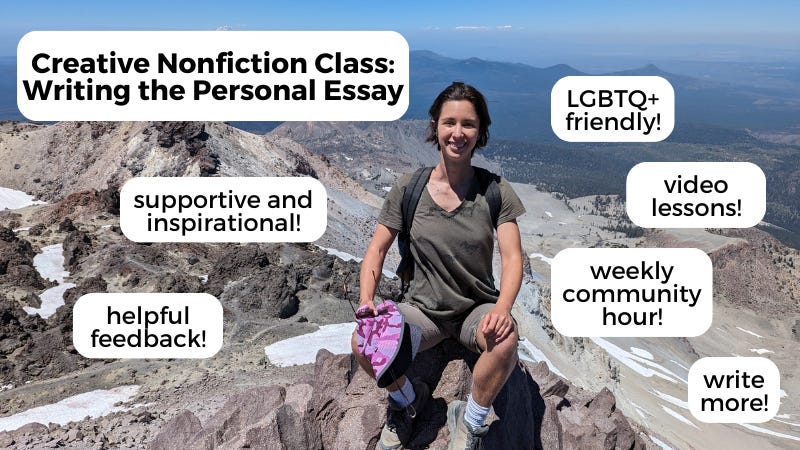A quick reminder: Looking for a supportive, encouraging, LGBTQ-friendly space to get some writing started? I’m teaching a 4-week online writing class starting April 16. I’d love for you to join if you’re interested. Sign up now to get the best early bird rate: $80. Check out all the details here.
Burnout is closely intertwined with communication, in my experience. Let me explain.
What causes burnout? Unrelenting work stress, usually. But what causes work to be unrelentingly stressful? Unhealthy communication with other people.
Maybe you dread having to give an update to your manager every day because the schedule is always behind. Maybe you work in customer service and have to deal with unreasonably angry people all day. Maybe your coworkers make offensive jokes and you don’t feel safe sharing your personal life.
You can’t change your workplace or other people’s behavior, but it is important to stay employed to keep your income. Your brain goes on the defensive. Now, you can continue to communicate at work but not outside of work. No more evenings with friends. No chatting after class. No responding to texts.
Now, all of your communication is unhealthy work communication. You become socially isolated. The burnout gets worse. You tell your therapist you are so tired of conversations and she asks you, “well, what are we doing here then?”
“Just get another job,” people advise. They don’t realize that you can’t be pleasant and upbeat while applying to other jobs at the same time you’re struggling with your perfectly adequate job that’s crushing your soul.
Scrolling through social media starts out as a replacement for socializing, but turns into a brain drain that removes any remaining ability you have to reach out to people.
You can’t write; a permanent case of writers block. You don’t want to talk on the phone. You can’t respond to emails or texts. You are burned out.
Burnout can start with stressful communication, and then your body’s defenses make all communication stressful and undesirable.
Being respectful and inclusive can help your coworkers or employees prevent burnout. A good work environment is simply good business as it helps everyone stay productive.
So what happens once you settle into burnout? It can feel like you’ll never recover. The challenge is that you need a big, unsettling change to fight burnout. This change could include:
Quitting your job
Getting a new, different job
Getting off social media completely
Finding a much less expensive living situation (like a van or boat)
Spending a lot more time outdoors
Prioritizing time with less stressful people
Moving closer to your friends and/or family
Committing to going to social groups and/or therapy regularly
Taking a lot of supplements to try to heal your constant stomach pain (just me? okay.)
Even if you make these big, scary changes, burnout takes a long time to heal from. Think months to years.
I really appreciate my friends sticking with me through periods of burnout.
Even if it takes a long time to recover, you are worth it.
Being able to communicate and have friends and tell your story is worth it.
Thanks so much for reading! Let me know what you think in the comments.
Do you need digital marketing assistance? I can help with graphics, websites, search, newsletters, videos, and more. Learn more and book a free discovery call at weshineconsulting.com! Or just hit reply and tell me about your digital marketing problem. Let’s get the message out about your great work!
“Amazing. Rey quickly and efficiently put together social media images for me and did an information audit of my website. I’ve loved working with Rey.” —Joanna
Check out my videos! YouTube • TikTok • Instagram • Facebook
Take care,
Rey











This all resonates so deeply for me. I used to work in the corporate world, in IT. I worked 60-80 hours a week, in a highly stressful environment. 14 years ago, I got sick and have been chronically ill ever since. In retrospect, it is obvious to me that what happened was not uncommon for AFAB late-diagnosed Autistics. I crashed and burned, and was unable to work at all for several years. Since then, I haven't worked more than 20 hrs a week, and mostly, less than that.
At the time I crashed, I was undiagnosed. I didn't know I was Autistic, and had no idea why it was so hard for me to "fit in." I never liked any of my jobs, and I never felt respected or valued at any of them, except for one boss who took me under her wing. Even then, the environment was brutal. I know I'm not alone in this; I don't think I know anyone who works in a corporate environment who feels comfortable there. Our cultural aditude about what is expected and condoned in most work environments is not conducive to well-being, especially for workers who are already marginalized in society.